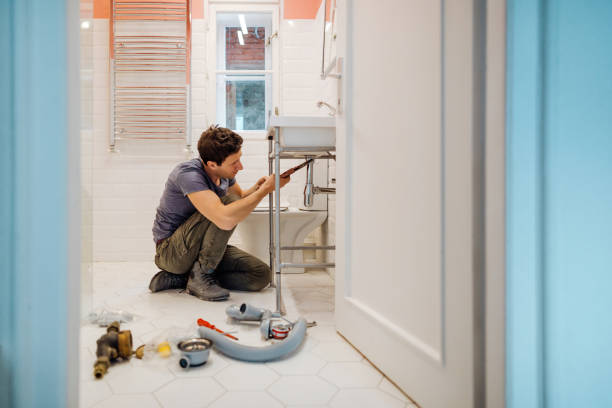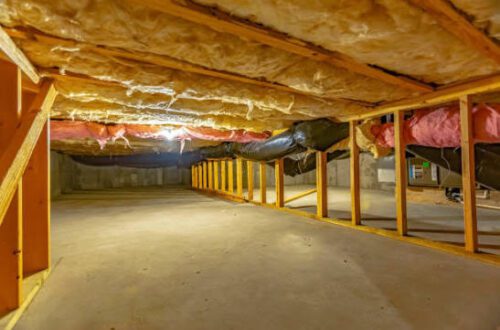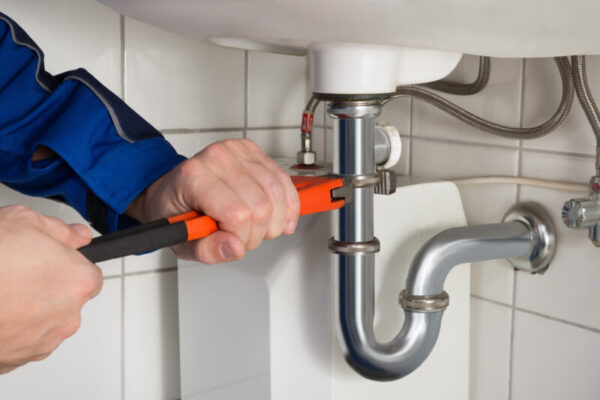Being a landlord can be rewarding, but let’s be honest—it comes with its challenges, too. One of the biggest? Keeping up with property repairs. Whether it’s a dripping tap or something more serious, every landlord knows that repairs are part of the job. The good news is that being prepared can make all the difference. Let’s look at the most common repairs landlords face and how you can stay on top of them.
Plumbing Problems: Call in the Experts
Plumbing issues are one of the most common headaches for landlords. From blocked drains to leaky pipes, it’s the kind of problem tenants won’t wait around to report. Water issues not only inconvenience your tenants but can also cause significant damage to your property if left unchecked.
For anything beyond the basics—like a dripping tap—you’ll want to bring in experts in property maintenance and repairs for landlords. Sure, you might think you can handle a small leak, but plumbing can be tricky. A poorly done repair could lead to bigger problems (and bigger bills) down the line. Save yourself the hassle and call a qualified expert when pipes are involved. It’s worth the peace of mind.
Boiler Breakdowns: The Urgent Fix
There’s nothing quite like a boiler breakdown in the middle of winter to send your tenants into panic mode. Heating and hot water aren’t just nice-to-haves—they’re essential. In most cases, landlords are legally required to ensure the heating system is in good working order.
The best way to avoid sudden breakdowns is regular servicing. An annual check-up can prevent a lot of issues, and it keeps you compliant with safety regulations. If the boiler does fail, speed is crucial. Arrange a repair or replacement as soon as possible—it’s not only your legal responsibility but also the right thing to do for your tenants’ comfort.
Damp and Mould: A Persistent Problem
Damp and mould are common complaints in rental properties, particularly in older homes or flats with poor ventilation. Left untreated, they can cause health issues for your tenants and damage to your property. Nobody wants to walk into a home that smells of damp or has unsightly black patches on the walls.
The first step is finding the cause. Is it a leaking roof, condensation from poor ventilation, or rising damp from the foundations? Once you’ve identified the source, act quickly. Improving ventilation, installing a dehumidifier, or fixing leaks are all potential solutions. And don’t forget to check extractor fans in bathrooms and kitchens—they’re often the first line of defence against damp.
Electrical Issues: Safety First
Electrical repairs aren’t just about keeping the lights on—they’re a serious safety issue. Faulty wiring, broken sockets, or outdated systems can pose a significant risk to your tenants. As a landlord, you’re required to ensure the electrical installation in your property is safe, with regular inspections and certifications.
Unlike other repairs, electrical work is not something you should ever attempt yourself. Always hire a qualified electrician for repairs, maintenance, or upgrades. It’s not only the safest choice but also ensures you’re meeting legal requirements.
Wear and Tear: The Inevitable Fixes
Every property experiences wear and tear. Walls get scuffed, carpets wear thin, and appliances reach the end of their lifespan. While it’s frustrating, it’s also unavoidable. The key here is to distinguish between standard wear and tear (which you should expect) and actual tenant damage (which they may be responsible for).
Plan for these fixes as part of your property’s ongoing maintenance. A fresh coat of paint every few years can work wonders for keeping your property looking appealing, and budgeting for appliance replacements will save you from nasty surprises when that washing machine finally gives out.
Roof Repairs: Keeping It Watertight
Roofs often get overlooked—until there’s a problem. A loose tile or small crack can lead to leaks, structural damage, or even pest infestations. If your tenants report water stains on the ceiling or you notice debris in the gutters, don’t ignore it.
Regular roof inspections, especially after severe weather, can help catch problems early. If you spot damage, hire a professional roofer to carry out repairs. Trying to patch things up yourself could make matters worse—and climbing on a roof without proper training is dangerous.
Locks and Security: Peace of Mind for Everyone
Security is a top priority for tenants, and it’s your responsibility to ensure they feel safe in their home. Over time, locks can wear out, keys can break, or you might need to change locks after a tenancy ends.
This is another area where you’ll want professional help. A qualified locksmith can replace or repair locks quickly, ensuring your property remains secure. It’s also a good idea to check window locks regularly, as these are often overlooked but equally important for security.
Garden and Exterior Maintenance: Don’t Neglect the Outside
While it’s easy to focus on the interior, the exterior of your property needs attention too. Fences can blow down, gutters get clogged, and outdoor steps can become a hazard over time. Neglecting the exterior doesn’t just make your property less appealing—it can lead to bigger problems later.
Encourage tenants to report any outdoor issues, and schedule regular maintenance checks. Simple tasks like clearing gutters or repairing loose paving can make a big difference. And don’t forget seasonal maintenance, such as trimming overgrown hedges or checking for icy paths in winter.
Keeping Repairs Under Control: A Few Tips
Staying on top of property repairs doesn’t have to feel overwhelming. Here are some quick tips to help you manage things efficiently:
- Have a maintenance plan – Schedule regular checks for key areas like plumbing, electrics, and the roof. Prevention is always better than cure.
- Build a reliable network – Have trusted tradespeople you can call on for different types of repairs. Knowing who to contact saves time and stress.
- Communicate with tenants – Encourage open communication so tenants feel comfortable reporting issues early. The sooner you know, the sooner you can act.
- Set aside a budget – Always have a contingency fund for unexpected repairs. It’s better to be prepared than caught off guard.
- Stay up to date with regulations – Knowing your legal responsibilities will help you avoid penalties and keep your tenants safe.
Repair Challenges Made Easy
Property repairs are part of being a landlord, but they don’t have to be a nightmare. By staying proactive, knowing when to call in the experts, and keeping communication open with your tenants, you can handle repairs efficiently and keep your property in great shape. It’s all about striking the right balance—looking after your investment while ensuring your tenants feel at home.






